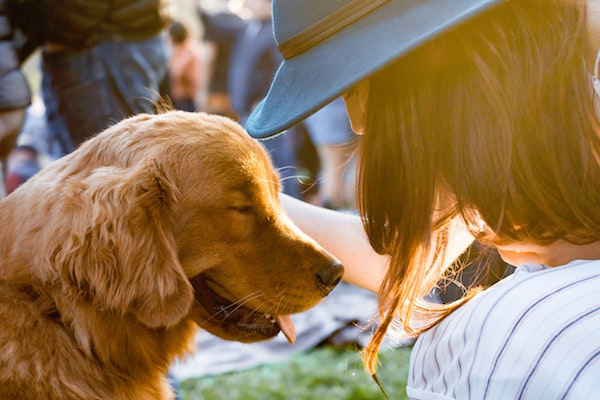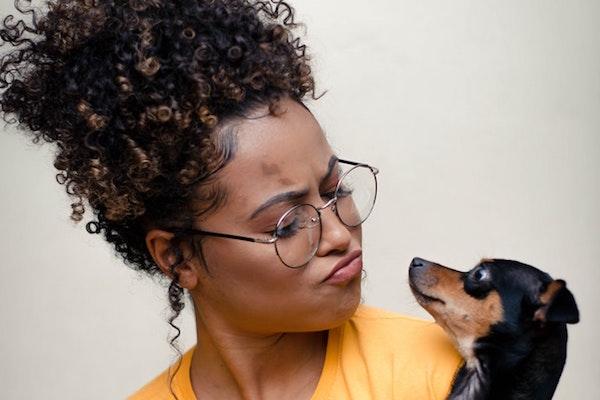
Reel Affirmations Women’s Shorts After-Party
November 7, 2012
Queer the Vote at the Fillmore
November 8, 2012How to keep pets happy and healthy during the winter holidays
The holidays and winter can be fun for you and your pets. However, when pets are included in holiday celebrations, they can also be chaotic times, filled with many dangers. Emergency visits to veterinary clinics spike during this time of year because of common, but preventable, illnesses and accidents.
Because we all know that family gatherings can be stressful sometimes, here are a few tips to help keep your pets happy and healthy, while you remain worry-free. With careful planning, your pet can have a safe and fun season, too!
Monitor your pet’s mobility. Pets are vulnerable to hypothermia and frostbite, just like us, and must be protected from extreme temperatures. This is especially important for very young, sick, and very old pets. Also, older pets are more prone to arthritis—which worsens in cold temperatures—and can be more at risk of slipping on ice when walking. If your senior pet shows signs of lameness, is limping, is moving slowly up or down stairs, or is having difficulty when trying to jump, please consult your veterinarian for evaluation and options that can improve your pet’s comfort.
Use pet-friendly products outdoors; know what’s toxic to your pet. If possible, use a pet-friendly ice melt on sidewalks and driveways. Regular ice melts may cause irritation to the pads of dogs’ feet, as well as illness if ingested by licking their paws. If you’ve walked your dog outside in the snow or on icy surfaces, then wash your dog’s feet with warm water when you return. Booties are available at pet supply stores and online, though some dogs will accept wearing them much more happily than others.
Antifreeze is another common winter danger. It is extremely toxic to pets and has a sweet taste. Frequently, pets will drink it voluntarily if they discover it on the ground. Pets often do not begin to show signs of illness until they are in severe—and commonly fatal—kidney failure. Car engines may also be hazardous. If you live in an area with outdoor/stray cats, then knock on the hood of your car before starting your engine. This simple action can prevent harm to any cats seeking the comfort of your engine’s warmth.
Prepare a pet emergency kit. If you live in a cold region where power outages occur on occasion, then it’s wise to have an emergency kit for your pets. Include bottled water, a week’s supply of food and medications, first-aid supplies, favorite toys, blankets, important paperwork, medical history, licenses, and a spare collar or leash. Make sure that your pet is wearing identification, especially during storms or times of travel. If your pet is injured, do not give human pain medications as these may be extremely toxic. Consult your veterinarian for advice and a safe prescription if needed. If your pet is already taking medications, and you’re concerned about a possible power outage, then contact your veterinarian/pharmacy for refills in advance, in case they have power or supply problems, as well.
Know what not to feed your pet. Holiday parties and meals not only create more opportunities for people to love on your pet, but also pose some health risks. People plus lots of food (and, sometimes, alcohol) mean that your pets may be offered fatty foods and dangerous treats. Although well intentioned, such acts of kindness can lead to a range health issues for your pet, some of which may be fatal: vomiting, diarrhea, or more serious conditions like lacerations and obstruction of the intestines, anemia, organ failure, or pancreatitis. Avoid high-fat foods, bones, and other potential toxins like onions, chives, garlic, raisins, grapes, macadamia nuts, chocolate, avocado, gum containing xylitol, milk, yeast dough, coffee, caffeine, raw/uncooked foods, high-salt-content items, and alcohol. Ask guests to keep their plates out of your pet’s reach. And, ensure that all trash cans are well secured during a party. Offering small, pet-safe treats in moderation and making sure that your guests know the rules about not feeding the pets are the best ways to show your love during celebrations.
Decorate for the holidays with your pet’s safety in mind—tips for trees, fireplaces, candles, and plants. Christmas trees are fascinating to pets. Cats like to climb and scratch them, and some may think that they are an appropriate place to relieve themselves. Ornaments become an abundant supply of toys, and the glass ornaments are particularly dangerous. Dogs may think that the tree is a new indoor potty area or attempt to climb into or play with it. If a pet knocks over a tree, it can result in injury to the pet, people, and anything else in the room that is near the tree. In addition, ingesting, licking, or chewing tree needles may cause vomiting and diarrhea—or even obstruction problems if eaten in large amounts.
Electrical wires and lights pose a very real danger should pets try to chew or bite them. Tinsel, ribbons, and string are often enticing to cats, but can be deadly if swallowed because they may cause an intestinal obstruction requiring surgery. Young cats and dogs seem especially fascinated with Christmas trees and lights, but any pet should be monitored.
Fireplaces and candles should be well protected and out of your pet’s reach. And, if you have gas appliances or a gas heater, then ensure that you have a functioning carbon monoxide detector to keep yourself and your furry friends safe.
Seasonal plants also pose potential dangers. Poinsettias, if eaten, may cause vomiting and diarrhea. Lilies and other bulb plants are highly toxic to cats and cause kidney failure. Mistletoe and holly (leaves and berries) can cause vomiting and diarrhea. If consumed in large amounts, then your pet can experience tremors or seizures—or even collapse. Keep the ASPCA’s poison hotline number handy, just in case your pet ingests something: 888-426-4435. There is a $65 consultation fee.
Show your love with pet-safe holiday gifts! If you want to treat your pet to holiday gifts, Nylabones and Kong are very good, strong, well-tested chew toys. Rawhides are popular, but can cause allergies, weight gain, or even choking or obstruction problems in some dogs—use them in moderation and under supervision. Greenies are common dental treats that are safe as long as your dog chews them well before eating them. Swallowing one whole piece can put your dog at risk for an obstruction problem. Also, make sure that you stay up to date on all pet food and treat recalls. Many recent recalls have posed widespread health risks. Here are two links to the latest list of recalled products: www.dogfoodadvisor.com/dog-food-recalls and www.avma.org/news/issues/recalls-alerts/pages/pet-food-safety-recalls-alerts.aspx.
Provide a safe, quiet space for your pet. Last, if your dog or cat is prone to anxiety, then the holidays can be particularly stressful. And, if you plan to travel with your pet, anticipate a large number of houseguests, or are concerned about storms, then a crate or a safe, quiet space in the house may be the best sanctuary for your pet. Natural and herbal calming remedies; prescription medications; and calming clothing, such as Thundershirts, can help alleviate anxiety.
Enjoy the holidays with your pet! Winter and holidays do indeed hold some very real (but avoidable) dangers for our furry friends. And, the precautions offered here can make the holidays more enjoyable and safe for everyone. Unfortunately, there’s no guarantee that all of the holiday family gatherings will be relaxing and drama-free for you. However, with forethought, planning, and common sense, you can help ensure that your pets have a safe and happy season and an emergency-free New Year!
JD Warford, DVM, is the owner and operator of DC MetroVet, a house-call veterinary practice serving Washington, D.C., and the Maryland suburbs. You can visit Dr. Warford’s website at www.dcmetrovet.com and blog at http://dcmetrovet.wordpress.com. Laurie White, a freelance editor, contributed her expertise to this article.





